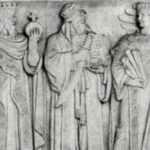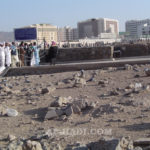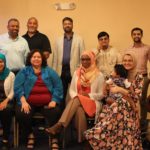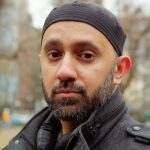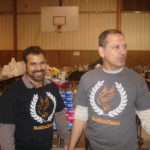By Jerrmein Abu Shahba
If we analyze history from the beginning of time till today, we will find that silencing truth has become a universal policy in most governments across the globe. More specifically, silencing truth that is expressed in defiance or resistance to the existing regime and the status quo becomes a trigger which infuriates people of authority. Such undemocratic regimes have resorted to different methods including kidnapping, imprisonment, assassination (whether undercover or explicitly), or other deceitful ways to silence the voice of criticism, get rid of them, and cut their tongues short.
From all people who aim to shed light on the truth, journalists, reporters, and anchors are often targeted due to their regular access to media platforms and their opportunity to relay a political message through their work scope. In the contemporary time we find that an increasing number of journalists have been hunted down and either killed or persecuted for speaking up against their corrupt governments or standing up against oppressors such as the Zionist regime and their worshipers.
Statistics reported in the RSF (Reporters without Borders) cite that about 1035 professional journalists were killed in the past 15 years. Torn by a never-ending bloody war, Syria has been the world’s deadliest country for journalists since 2012. There is danger everywhere on the ground and journalists, professional or not, are permanently exposed to sniper fire, missiles, improvised explosive devices or suicide bombers. Worldwide, a total of 54 journalists are currently held hostage. And 80 journalists were killed worldwide in 2018.
In 2014, there was the death of Serena Shim, a US citizen who is of Lebanese origin and worked for Press TV, and she was killed in a suspicious car accident as she was in a working mission in Turkey to cover the ongoing war in Syria. There is the murder of prominent journalist and editor Shujaat Bukhari earlier in the year who was shot outside his office by unknown gunmen in Indian-administered Kashmir which devastated both journalists and ordinary people. And very recently news spread like wildfire about the brutal killing of Khashoggi, a Saudi journalist dissident who was kidnapped and killed to pieces by Saudi authorities at their very own embassy.
Then you have Islamic scholars and leading personalities such as Ayatullah Baqir Al-Sadr, Sheikh Nimr Baqir al-Nimr and their likes who were targeted by their corrupt governments since they were active in the political arena and spoke up heavily against their tyrannical regime. You then have the common people who are not in the public arena but have become activists such as Amina bint al-Huda who tried to expose the injustice of Saddam’s regime to her brother Sayyid Baqir Al-Sadr – she was not a reporter but her efforts to expose the truth was seen as a journalistic act. You have examples like Martin Luther King who fought for social justice and civil rights, and for that he was assassinated.
The obligation of enjoining the good and forbidding the evil is one of the Usool-e-Deen (foundation of religion), but this obligation becomes even more critical when it comes to forbidding an injustice done upon others, as opposed to injustice done to oneself. For example, a person may commit injustice to themselves by failing to pray the obligatory prayer, but by stealing property from others or backbiting, these acts of injustice that affects others make it graver. Standing up against oppression is one of the best acts of ‘forbidding the evil’ that is incumbent upon every person, regardless of faith. By standing up against oppression, you are at the same token standing up for peace, hope, and justice. Imam Jafar as-Sadiq (AS) says: “He is not a believer who in spite of being capable avoids helping his brother in need; Allah also leaves him on his own and does not help him in this world nor the Hereafter.” (Bihar al-Anwar)
When we review history of religion, we find that aside from the prophets and messengers who were on a divine mission not only to invite people to the one-ness of God, but also to stand up against the corrupt ruler and figures of their time, thus exemplifying the command of Allah when He addressed Prophets Musa and Haroon, “Go, both of you to Pharaoh, for he has indeed transgressed all boundaries.” [20:43] You find laypersons (both men and women) such as the People of the Cave and Lady Aasiya bint Muzahim (wife of Pharoah) who embodied the example of freedom fighters who sacrificed their safety for the sake of their faith and stood up against the tyrant ruler. And in Islamic history, you find courageous men like Maytham al-Tammar who acted as a reporter to speak the virtues of Imam Ali ibn Abi Taleb and expose the injustice of the ruling caliphate, to the point that his tongue was cut in prison effort to stop him from speaking the truth.
And you have the best of examples, the chosen companions of Imam Hussain (AS) who defied all odds and embraced death in the plains of Karbala in opposition to Yazid’s unjust acts and in defense of Imam Hussain. After Karbala, it was Lady Zainab (AS) who took on the role of the lead journalist and key anchor to report the tragedies which befall her family in Karbala and the killing of her brother. And before her, it was her mother Lady Fatima al-Zahra who used to go out every night along with her husband Imam Ali and her two sons and broadcast to the Ansaar the injustices committed, and most notably through her famous Sermon of Fadak where she challenged the leaders of falsehood and defended her and Imam Ali’s confiscated rights.
Today, we seek inspiration from the immaculate personalities of Lady Fatima and Lady Zainab, as strong women who have courageously stood up against the oppressors of their time. Through their path of struggle and sacrifice, we pluck a petal of their patience and the pristine examples we see today from brave men and women standing up for their beliefs and defying injustice wherever it lies. These examples are great testimony of the powerful and universal school of AhlulBayt which taught us the Hussaini lesson that death with dignity is better than humiliation, and death in the way of God is sweeter than honey. Indeed, we learn bravery from a man who saw a thousand arrows flying towards him and he still stood with the truth.

